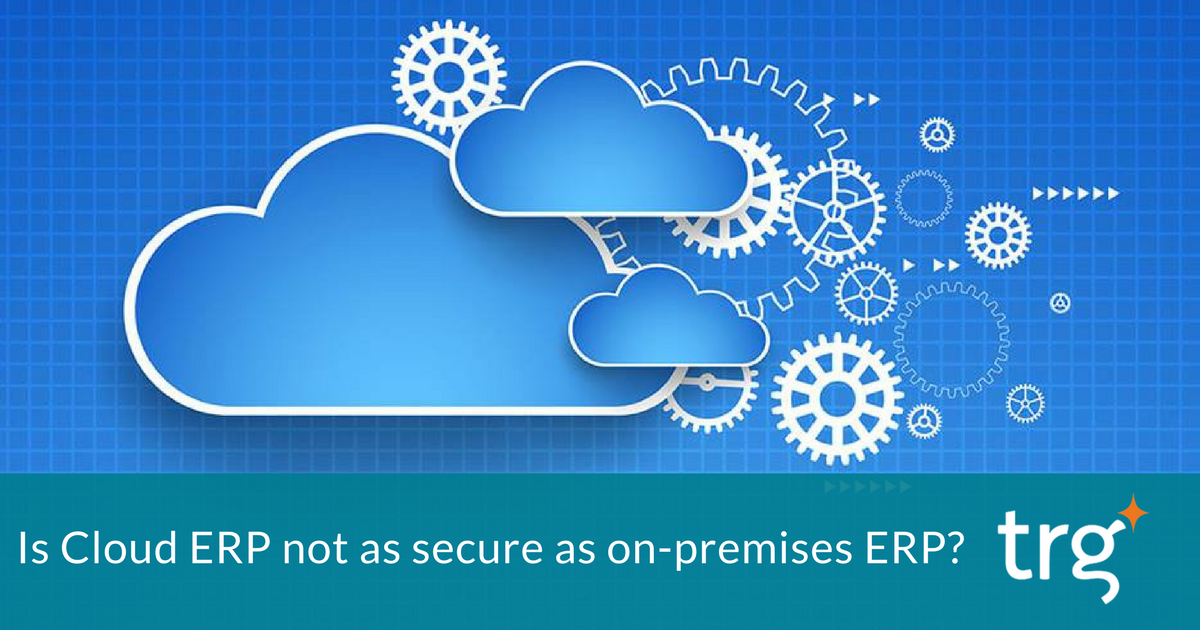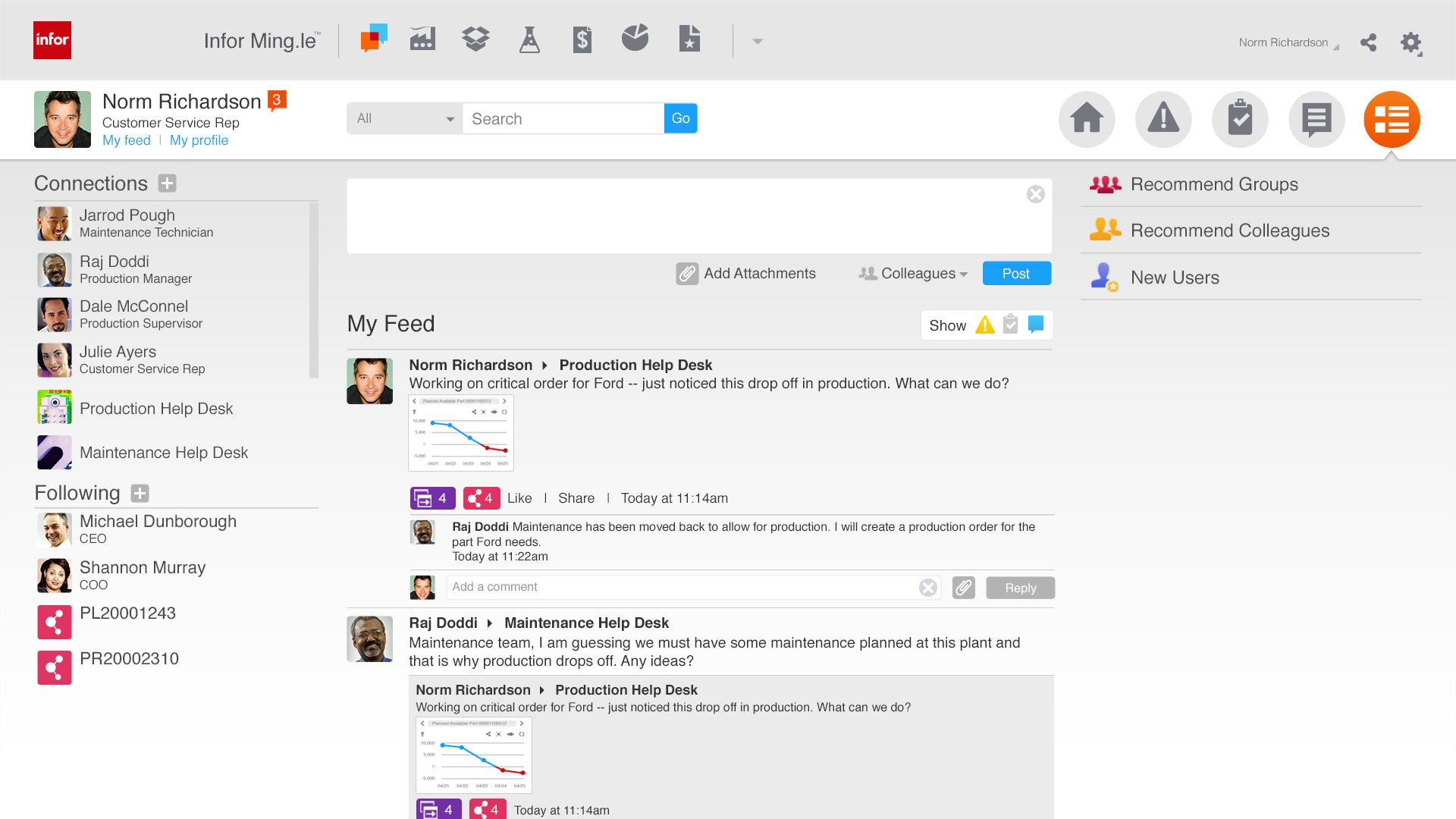One of the most prominent trends in ERP recently is the emergence of cloud-based solutions. There is so much talk about cloud ERP that sometimes it is hard to tell hype from the truth. Before you decide whether to choose a cloud or on-premises system, there are some common misconceptions that should be dispelled.
Recent TRG blog posts
Dispelling common misconceptions about Cloud ERP
Posted by Rick Yvanovich on Fri, Jan 13, 2017
Blog Topics: Enterprise Resource Planning ERP
Donald Trump and the Rising Reshoring Movement
Posted by Rick Yvanovich on Tue, Jan 10, 2017
In June 2015, Donald Trump, then the Republican front runner, threatened to slap a 35% tariff on Ford’s cars and trucks made in Mexico if the automaker went ahead with plans to move its production of small cars from the US to Mexico.
The feud between Mr. Trump and Ford was a highlight of his repeated pledges to bring manufacturing jobs back to the US. Mr. Trump also made it very clear that he opposes free trade agreements like TPP (Trans-Pacific Partnership) and will renegotiate NAFTA (the North American Free Trade Agreement).
Blog Topics: Enterprise Resource Planning ERP
What Is APS (Advanced Planning and Scheduling)? A Key ERP Integration
Posted by Rick Yvanovich on Fri, Jan 6, 2017
APS (advanced planning and scheduling) is an advanced manufacturing management system that allocates raw materials and production capacity optimally in order to balance demand and capacity constraints. It represents a revolution compared to traditional planning systems, most notably MRP (manufacturing resource planning), which is also the grandfather of ERP.
Blog Topics: Enterprise Resource Planning ERP
3 Infor ERP Systems Ranked Market-Leading Solutions
Posted by Thai Pham on Tue, Dec 27, 2016
Nucleus Research, one of the market-leading technology research and analysis firms, periodically issues a special report – Technology Value Matrix – to evaluate and rate ERP vendors and products.
Blog Topics: Enterprise Resource Planning ERP
Manufacturers adapt to Industry 4.0
Posted by Thai Pham on Thu, Dec 22, 2016
We are on the verge of the Fourth Revolution of industrial manufacturing on a global scale. The First Revolution witnessed the era of mechanisation thanks to the invention of steam engine. The Second Revolution was characterised by electric-powered assembly line and mass production.
The Third Revolution introduced automation and information technology into factories. And the Fourth Revolution promises to deliver full integration of latest disruptive technologies such as A.I. (Artificial Intelligence), big data, and Internet of Things.
Blog Topics: Enterprise Resource Planning ERP
Healthcare ERP Boosted by Cloud-based Supply Chain Management
Posted by Thai Pham on Tue, Dec 20, 2016
There is no question that supply chain management is critically important. And this is especially true for the healthcare industry. Studies indicate that supply chain administration cost is the second largest operational expenditure of most healthcare institutions in the US, surpassed only by labour cost. The healthcare supply chain is also more complex and demanding than most industries’.
Blog Topics: Enterprise Resource Planning ERP
ERP vendors focus on consolidation
Posted by Thai Pham on Fri, Dec 16, 2016
Koch Industries, one of the largest private companies in the US, is pouring US$2.5 billion into Infor, which is also privately held and selling enterprise applications such as ERP, financial management, and retail management solutions. Infor is currently one of the world’s largest ERP vendors, along with SAP, Oracle, and Microsoft.
Blog Topics: Enterprise Resource Planning ERP
[Infographic] - A comparison of Tier 1 ERP Vendors
Posted by Rick Yvanovich on Thu, Dec 15, 2016
The large number of ERP vendors in the market can be categorised using the tiers system. Tier 1 vendors are the giants that, together, hold the lion’s share of the global ERP market.
Blog Topics: Enterprise Resource Planning ERP
Should your ERP system be vertical-specific?
Posted by Rick Yvanovich on Fri, Dec 9, 2016
In the past, large ERP providers tended to offer extensive “one-size-fits-all” products to very broad horizontal market segments. One solution was offered to different prospects in different industries. Only small providers focused on vertical markets, i.e., specific industries.
Blog Topics: Enterprise Resource Planning ERP
How modern UX design empowers ERP systems
Posted by Rick Yvanovich on Thu, Dec 8, 2016
Highly capable ERP systems but are too complex for ordinary users to adopt would hinder your chance to realise its full potential. Many, if not most, of your ERP system’s users may not have in-depth technical skills. So it is crucial that the software is easy to use and friendly to business users.
Blog Topics: Enterprise Resource Planning ERP
 English
English  Vietnamese
Vietnamese 





![[Infographic] - A comparison of Tier 1 ERP Vendors](https://blog.trginternational.com/hubfs/Infographic/Tier%201%20ERP%20vendor.jpg)



